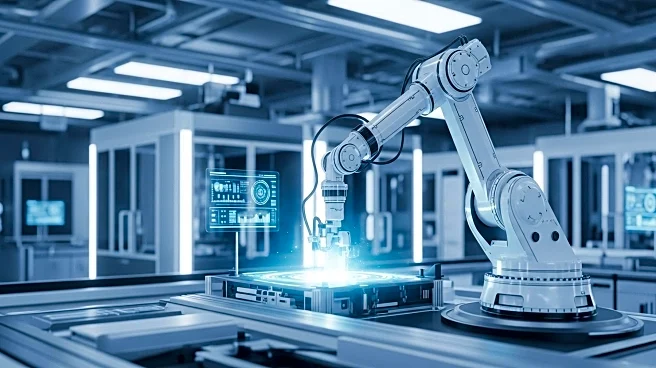What is the story about?
What's Happening?
Manufacturing companies are experiencing difficulties in adopting artificial intelligence (AI) technologies, a phenomenon termed 'AI-nertia.' Despite significant investments, many organizations show low usage rates of AI systems. The reluctance stems from factors such as unknown unknowns, loss aversion, and incentive gaps. These challenges prevent companies from realizing the potential efficiency gains AI offers. The industry risks missing out on substantial opportunities if AI adoption continues at a slow pace, similar to the e-commerce adoption in the 2010s.
Why It's Important?
The slow adoption of AI in manufacturing could lead to missed opportunities for efficiency improvements and competitive advantages. AI has the potential to revolutionize production processes, reduce costs, and enhance decision-making. However, organizational resistance due to fear of failure and misaligned incentives hinders progress. Companies that overcome these barriers and embrace AI could gain significant advantages, while those that do not may fall behind in the global market.
What's Next?
To overcome AI-nertia, companies need to align AI adoption with human incentives and create environments where AI success equates to human success. Strategies include starting with read-only AI systems, creating parallel wins, and sharing the benefits of AI adoption with employees. Organizations must address the cultural and institutional biases that resist AI adoption to fully leverage its potential.














